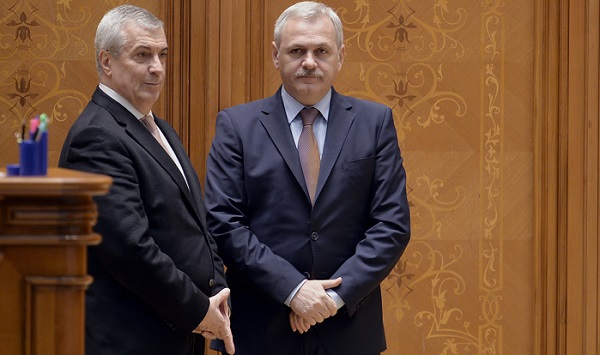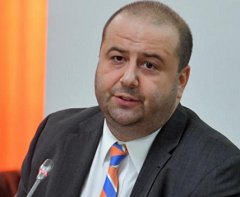 The Senate adopted on Thursday the draft amending Law 94/1992 on the organization and functioning of the Court of Auditors, which contains amendments that could freeze all payments for European funded projects in the current budgetary year – as the authorities in Brussels warned.
The Senate adopted on Thursday the draft amending Law 94/1992 on the organization and functioning of the Court of Auditors, which contains amendments that could freeze all payments for European funded projects in the current budgetary year – as the authorities in Brussels warned.
Details and especially consequences of this law – HERE-LINK.
As this is the decision-making chamber, the law goes to promulgation.
In the European Commission’s view, some of the approved amendments do not meet international standards and affect the institution’s independence.
In the initiators’ view, though, changes were made precisely to align the law with international auditing standards. Correlation with international regulations is the pretext invoked in the explanatory memorandum of this legislative intervention, but also of other projects harshly criticized by the European institutions. For example, in the case of „reforming” laws on the judiciary.
Interventions on Law 94/1992 undoubtedly have the potential to severely affect the independence of the Court of Auditors in several ways:
- expand president’s attributions (a political appointee, by the Parliament) to the detriment of collective management, through the Court’s plenum
- allow the interference of other institutions in the Court’s activity
- creates loopholes for the heads of public institutions who illegally spent public money
For Romania, the stake of these changes means over EUR 20 billion. For PSD and ALDE, the authors of the dangerous amendments, the stake is the political control of the Court of Auditors, so that local elected representatives and heads of institutions could not be held accountable for an illegal or unnecessary spending of public (national and European) funds.
The draft amendment to Law 94/1992 on the Court of Auditors received a final vote in the Chamber of Deputies on 25 April and received all the opinions of the Senate committees involved in the procedure.
The decision gets concentrated in one hand: expanding the president’s role, to the detriment of the Court of Auditors’ Plenum
The proposed amendments effectively cancel the collective management of the Court of Auditors, as the most important tasks are transferred from the plenum of 18 (independent) audit advisors to the president of the institution (a political figure appointed by the Parliament).
 At this moment, the president is Mihai Busuioc (photo), a social-democrat loyal to Liviu Dragnea. Former Secretary-General of the Government, after PSD-ALDE came into power, he was the main pawn used by Liviu Dragnea inside Victoria Palace to stop Sorin Grindeanu and Victor Ponta from taking over the government.
At this moment, the president is Mihai Busuioc (photo), a social-democrat loyal to Liviu Dragnea. Former Secretary-General of the Government, after PSD-ALDE came into power, he was the main pawn used by Liviu Dragnea inside Victoria Palace to stop Sorin Grindeanu and Victor Ponta from taking over the government.
Mihai Busuioc was appointed last year to the Court of Auditors for a nine-year term.
Extended attributions for the president:
- „The organizational structure of the Secretariat General and the attributions of its departments are established by the Plenum of the Court of Auditors,” the current law provides. The amendment voted by deputies adds that these things will be done based on the proposal of the Court of Auditors’ president.
- It is the Court of Auditors’ president who will decide whether he or she notifies prosecutors of irregularities found. The destiny of mayors, heads of institutions, etc. who spent the public money in violation of the law will exclusively depend on the will of a political appointee. Now, Article 33 provides that the notification is made by the head of the department who identified „the acts on which there are indications that they were committed in violation of the law.”
- „The president approves the responsibilities assigned to departments, divisions of the Secretariat General and the president’s apparatus” shall be added to Art. 60.
- A new structure is established that reports to the president – „President’s apparatus” (Article 8). It is a distinct structure from the secretariat general and the president’s office and will check all reports before they are transmitted.
Court of Auditors is no longer the ultimate authority to certify data from audited execution accounts
The draft approved in the Chamber of Deputies repealed art. 31 of the current law, which now provides:
- The Court of Auditors shall certify the accuracy and veracity of the data in the audited execution accounts.
- No other authority can decide on the data registered in the execution accounts, except on a provisional basis.
This means that the Court of Auditors is the decisive authority in the matter of discharge – the granting of a certificate of compliance for the certification of the execution of the accounts at a public authority.
By repealing the article, any entity may decide on the certification of public institutions’ accounts and the Court of Auditors is compelled to accept the report of the auditor paid by the audited entity.
Measures to protect officials with problems of a criminal nature
- The Court of Auditors’ obligation to request „the suspension from office, according to the law, of persons accused of committing acts that cause significant damages or serious financial deviations, identified following the controls or audits carried out, until final decisions are issued in the causes in which these persons are involved „(art. 45).
- 54, which required the suspension from office of the Court of Auditors’ members and external public auditors sent to trial. The draft adopted by the Chamber of Deputies’ members provides for the suspension from office only when a first conviction has been decided.









